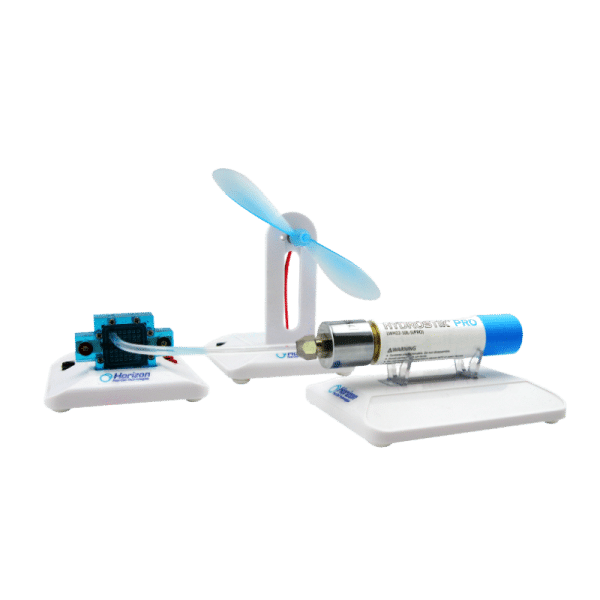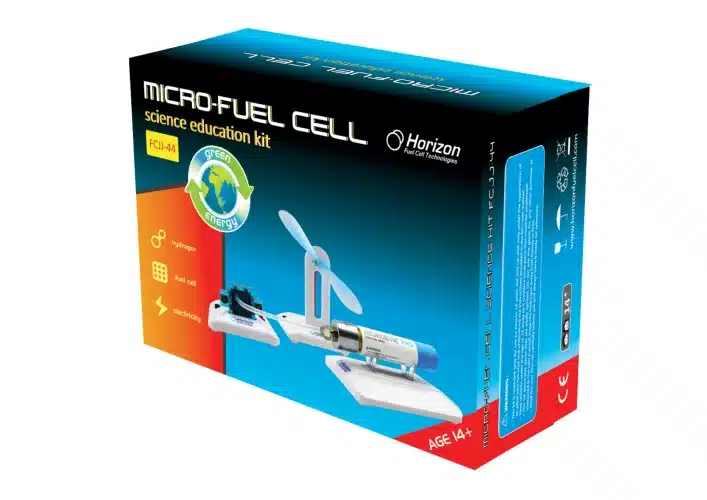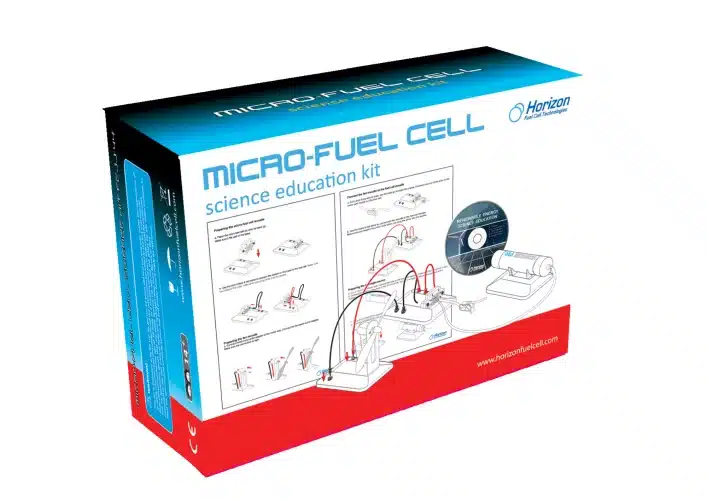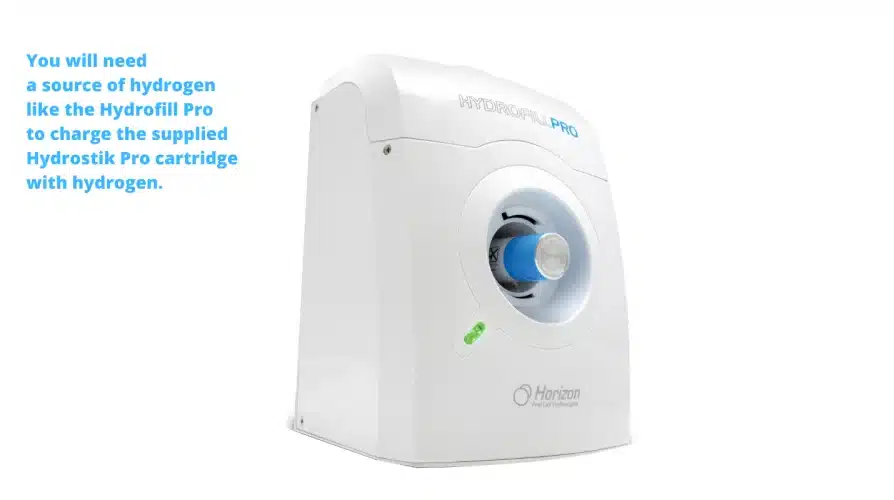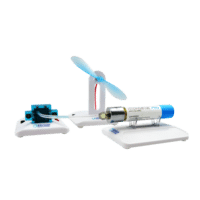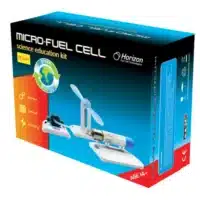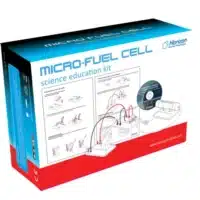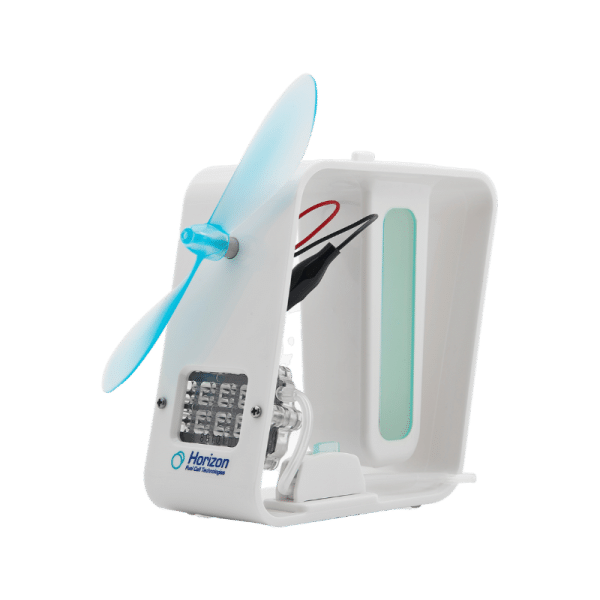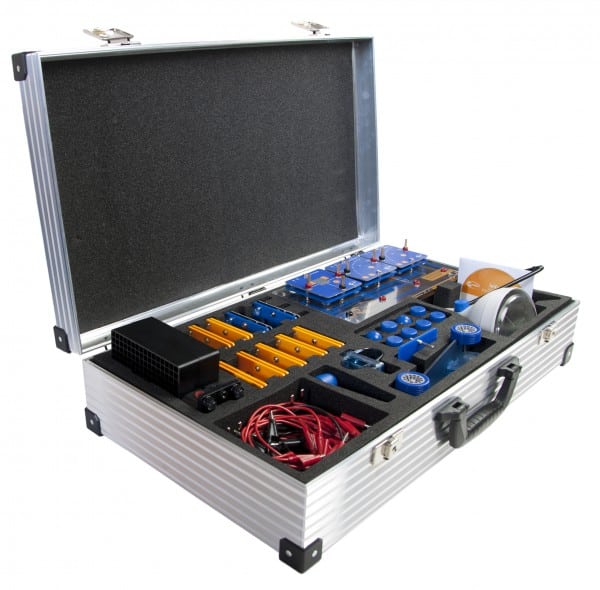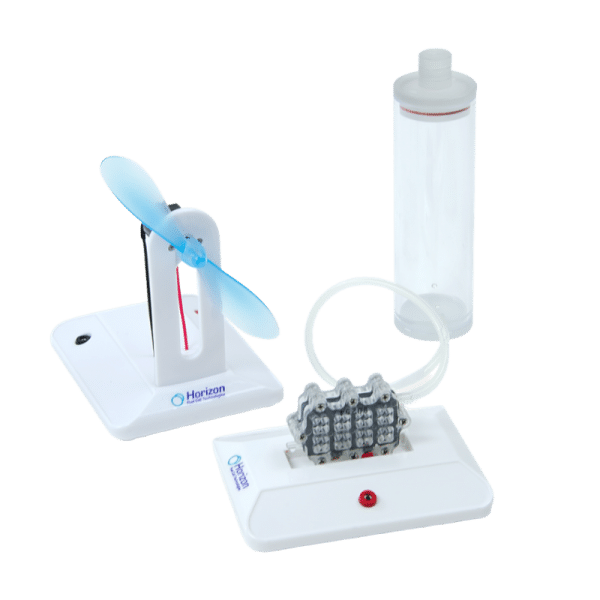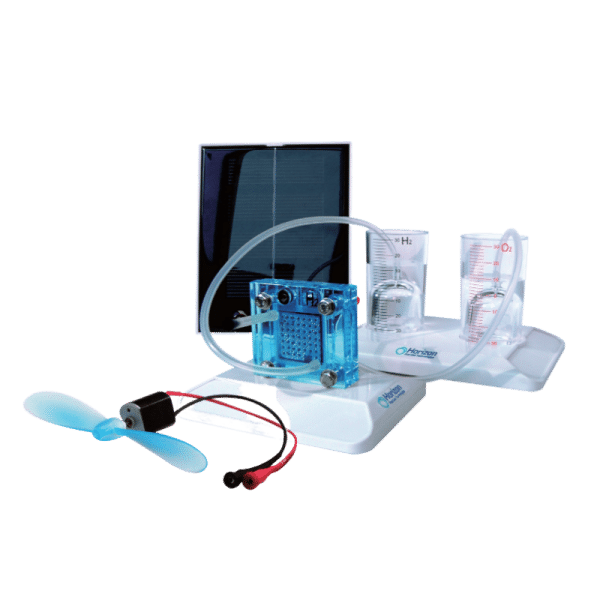Description
Micro Fuel Cell Science Kit – product overview
Explore the future of energy storage with Horizon’s Micro Fuel Cell Kit. Power a mini turbine by converting solid state hydrogen in the HydroStik Pro metal hydride cartridge into electrical energy via a Horizon PEM fuel cell. Kids can see the effect as the hydride slowly cools and releases hydrogen into the fuel cell. The process is a model for all micro fuel cell systems— a working example of solid hydrogen storage that can lead to many interesting and creative application ideas.
You will need a source of hydrogen like the Hydrofill Pro to charge the supplied Hydrostik Pro cartridge with hydrogen.
TIP!
Use Horizon Energy Monitor (FCJJ-24) to measure the output voltage & current produced by the fuel cell or do various experiments.
Why Fuel Cells and Hydrogen?
Fuel cells can be thought of as alternative energy devices. They convert chemical energy into electrical energy. Hydrogen fuel cells do this very cleanly, with no toxic emissions, and with a better efficiency. Fuel cells do not generate energy out of thin air. They use hydrogen. Hydrogen is an outstanding carrier of energy. Hydrogen is non-toxic, renewable, easily obtained, and packed with energy. When it combusts with oxygen, it turns into water. This water can again be split into hydrogen and oxygen via electrolysis. The generated hydrogen can be combusted once again, thus undergoing a limitless cycle without toxic emissions. With a fuel cell, you can convert hydrogen into electric current without combustion.
Fossil fuels are converted into usable energy through combustion. The energy released during combustion is inherently difficult to capture and inefficient. It also produces carbon dioxide, which cannot easily be converted back into a usable fuel. A fossil fuel combustion engine at a power plant is only about 30 to 40% efficient. This means it coverts only 30 to 40% of the energy in the fossil fuels to usable energy (electricity). Engines in a car are even less efficient, and reach the level of 15 to 20% of efficiency. Where does the rest of the energy go? It escapes as heat, vibration, and noise.
Curriculum
What is included in the horizon energy curriculum? The lab equipment is just the beginning. We’ve built the horizon energy curriculum to provide teachers with multiple resources for engaging their students.
Materials provided
- E-Book
Concepts covered
 Chemistry Concepts
Chemistry ConceptsEnergy, Hydrogen Generation, Reactions, Redox Reactions
 Physics Concepts
Physics ConceptsClassical Mechanics, Energy, Ohm’s Law, Power (Electric)
 Earth Science Concepts
Earth Science ConceptsClimate change, Renewable Energy, Human Impact

